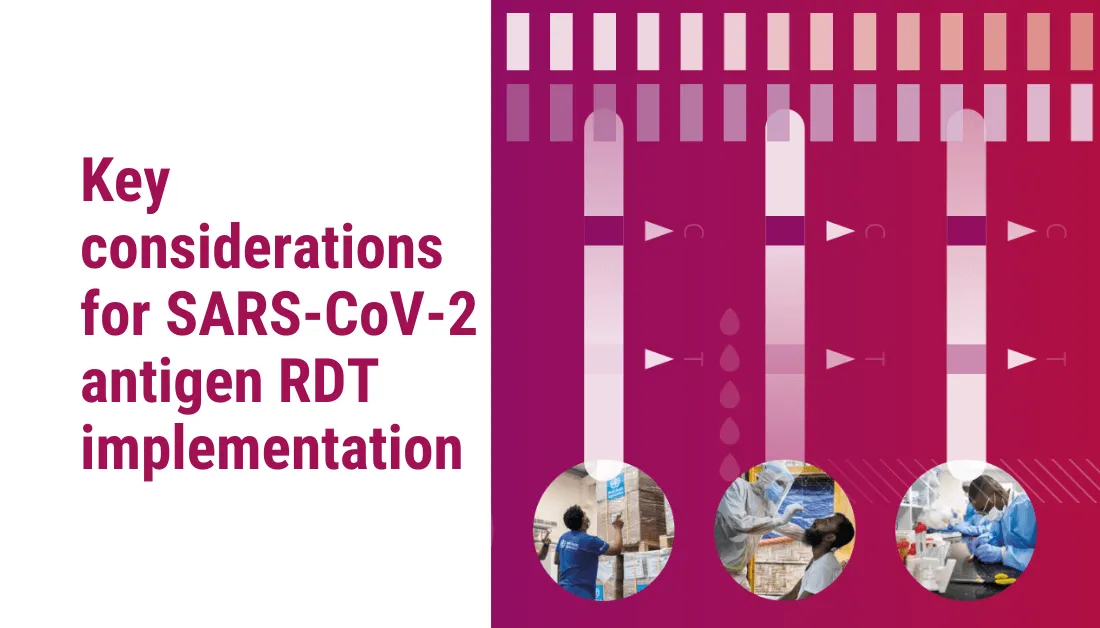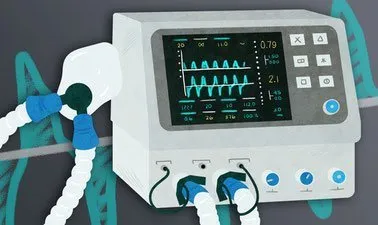
Key considerations for SARS-CoV-2 antigen RDT implementation 
Learn the basics of Key considerations for SARS-CoV-2 antigen RDT implementation ▼
ADVERTISEMENT
Course Feature
![]() Cost:
Cost:
Free
![]() Provider:
Provider:
OpenWHO
![]() Certificate:
Certificate:
Free Certification
![]() Language:
Language:
English
![]() Start Date:
Start Date:
On-Demand
Course Overview
❗The content presented here is sourced directly from OpenWHO platform. For comprehensive course details, including enrollment information, simply click on the 'Go to class' link on our website.
Updated in [May 19th, 2023]
This course provides an overview of the key considerations for the implementation of SARS-CoV-2 antigen rapid diagnostic tests (Ag-RDTs). It covers the major elements that must be taken into account before, during and after the implementation of Ag-RDTs in order to ensure effective implementation and greater public health benefits.
The course will discuss the importance of Ag-RDTs in the context of the COVID-19 pandemic, the different types of Ag-RDTs available, the advantages and limitations of Ag-RDTs, and the challenges associated with their implementation. It will also provide guidance on the selection of appropriate Ag-RDTs, the development of a comprehensive implementation plan, and the monitoring and evaluation of Ag-RDTs.
By the end of the course, participants will have a better understanding of the key considerations for the implementation of Ag-RDTs and will be better equipped to develop and implement effective Ag-RDT programs. The course is designed for public health professionals, laboratory personnel, and other stakeholders involved in the implementation of Ag-RDTs. Photo credits: WHO / FIND.
[Applications]
After this course, it is suggested that the implementation of SARS-CoV-2 antigen RDTs should be done in a comprehensive and systematic manner. It is important to consider the availability of resources, the capacity of the health system, the cost-effectiveness of the tests, and the potential impact on public health. Additionally, it is important to ensure that the tests are used appropriately and that the results are interpreted correctly. Furthermore, it is important to ensure that the data collected is used to inform public health decisions and to monitor the impact of the tests. Finally, it is important to ensure that the tests are used in a way that is equitable and accessible to all.
[Career Paths]
1. Public Health Officer: Public health officers are responsible for developing and implementing public health policies and programs to protect and improve the health of the public. They work with local, state, and federal agencies to ensure that public health regulations are followed and that the public is informed about health issues. As the implementation of Ag-RDTs becomes more widespread, public health officers will be increasingly important in ensuring that these tests are used effectively and safely.
2. Infectious Disease Specialist: Infectious disease specialists are medical professionals who specialize in the diagnosis and treatment of infectious diseases. As the use of Ag-RDTs becomes more widespread, infectious disease specialists will be increasingly important in helping to diagnose and treat patients with SARS-CoV-2 infections.
3. Laboratory Technician: Laboratory technicians are responsible for performing laboratory tests and analyzing the results. As the use of Ag-RDTs becomes more widespread, laboratory technicians will be increasingly important in helping to ensure that the tests are performed correctly and that the results are accurate.
4. Epidemiologist: Epidemiologists are public health professionals who study the patterns, causes, and effects of health and disease conditions in defined populations. As the use of Ag-RDTs becomes more widespread, epidemiologists will be increasingly important in helping to identify and track the spread of SARS-CoV-2 infections.
[Education Paths]
1. Bachelor of Science in Public Health: A Bachelor of Science in Public Health (BSPH) is a degree program that focuses on the prevention and control of diseases and other health issues. It provides students with the knowledge and skills to understand the complexities of public health, including epidemiology, biostatistics, health policy, environmental health, and health promotion. This degree is becoming increasingly popular as the demand for public health professionals grows.
2. Master of Science in Epidemiology: A Master of Science in Epidemiology (MSE) is a degree program that focuses on the study of the distribution and determinants of health-related states or events in specified populations. It provides students with the skills to understand the causes of disease, the effects of interventions, and the development of public health policies. This degree is becoming increasingly popular as the demand for epidemiologists grows.
3. Doctor of Public Health: A Doctor of Public Health (DrPH) is a degree program that focuses on the practice of public health. It provides students with the knowledge and skills to understand the complexities of public health, including epidemiology, biostatistics, health policy, environmental health, and health promotion. This degree is becoming increasingly popular as the demand for public health professionals grows.
4. Master of Public Health: A Master of Public Health (MPH) is a degree program that focuses on the practice of public health. It provides students with the knowledge and skills to understand the complexities of public health, including epidemiology, biostatistics, health policy, environmental health, and health promotion. This degree is becoming increasingly popular as the demand for public health professionals grows.
Course Provider

Provider OpenWHO's Stats at AZClass
Discussion and Reviews
0.0 (Based on 0 reviews)
Explore Similar Online Courses

Create a tiny web app with React

Kotlin on Android: Managing Preferences and Settings

Python for Informatics: Exploring Information

Social Network Analysis

Introduction to Systematic Review and Meta-Analysis

The Analytics Edge

DCO042 - Python For Informatics

Causal Diagrams: Draw Your Assumptions Before Your Conclusions

Whole genome sequencing of bacterial genomes - tools and applications

COVID-19 Contact Tracing

Mechanical Ventilation for COVID-19

COVID-19 in Slums & Informal Settlements: Guidelines & Responses
 Related Categories
Related Categories
 Popular Providers
Popular Providers
Quiz
 Submitted Sucessfully
Submitted Sucessfully
1. What is the purpose of this course?
2. What is the source of the photo credits?
3. What type of tests are discussed in this course?
4. The photo credits are from _________.
Correct Answer: WHO / FIND


Start your review of Key considerations for SARS-CoV-2 antigen RDT implementation